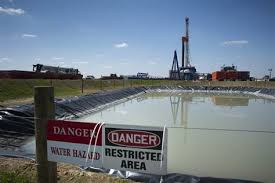In 2010, Congress commissioned the U.S. Environmental Protection Agency (EPA) to study the impact of fracking on drinking water. The U.S. EPA released its long-awaited final draft of its report today, assessing how fracking for oil and gas can impact access to safe drinking water. The report refuted the conclusion arrived at by the U.S. EPA’s 2004 study that fracking poses no threat to drinking water, a conclusion used to exempt the fracking process from the Safe Drinking Water Act.
The report found that fracking for shale oil and gas has not led to “widespread, systemic impacts on drinking water resources in the United States,” but said fracking could contaminate drinking water under certain conditions, such as when fluids used in the process leaked into the water table, and found isolated cases of water contamination.
The report looked at water use at five stages of the water-intensive process: use of the available water supply for fracking; the mixing of chemicals with water to create fracking fluid; the flowback of the fluid after it has been injected underground to fracture shale deposits to release oil or gas; treatment of the wastewater byproduct of fracking; and the injection wells frequently used to dispose of fracking wastewater when the process is complete.
“Hydraulic fracturing in combination with advanced directional drilling techniques has made it possible to economically extract oil and gas from unconventional resources, such as shale, tight formations and coalbeds,” the report says. “The growth in domestic oil and gas exploration and production made possible by the expanded use of hydraulic fracturing, has raised concerns about its potential for impacts to human health and the environment. Specific concerns have been raised by the public about the effects of hydraulic fracturing on the quality and quantity of drinking water resources.”

